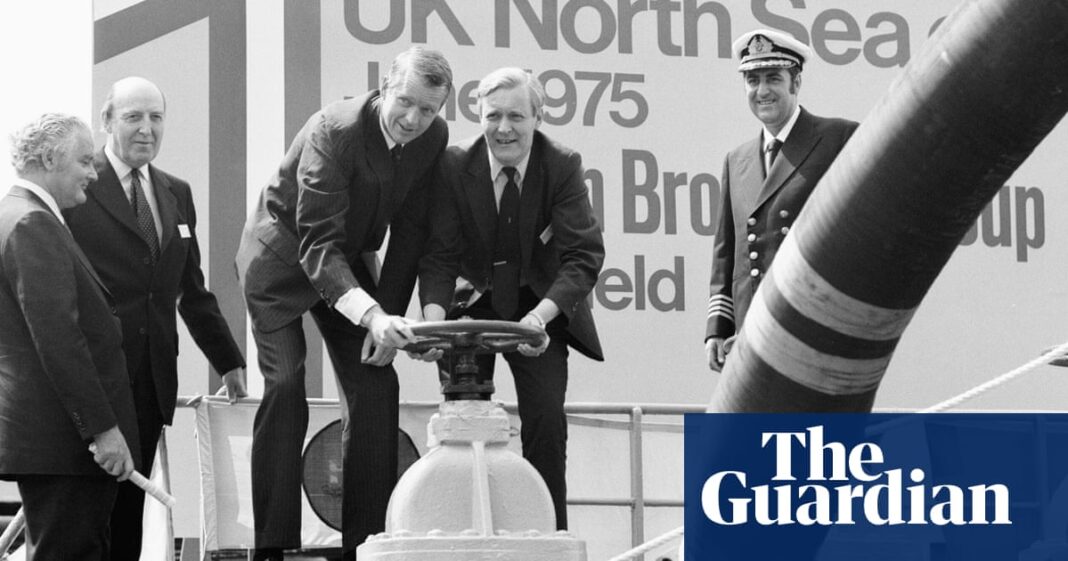Benn turns the tap as Britain’s first North Sea oil flows
19 June 1975
In an English garden party atmosphere, under marquees in the middle of an oil refinery, Mr Tony Benn yesterday conducted a ceremony of what he called national celebrations of the first North Sea oil.
He had just turned a large green valve on the tanker, Theogennitor, moored with 14,000 tons of oil worth more than £500,000 at the BP refinery on the Isle of Grain, Kent.
On such a flaming June morning it was unpatriotic to dwell on the disclosure that delays at the well had caused the tanker to come in less than half full with £750,000 worth of oil space empty – so as not to delay the ceremony – and that the oil was not actually due to flow until the evening for safety reasons.
It would also be rather brutal to harp on the fact that the occasion was an international one not a British one. The Japanese built, Liberian-registered, Greek-owned and skippered tanker was delivering Scottish oil to an English port for an Anglo-American consortium.
Mr Benn said that Britain would be one of the top seven oil producers by 1980, and he believed that it was “a day of national celebration for us. I feel sure that the British people would wish to offer their praise and thanks to the pioneers who faced the problem of extracting this oil from this hard environment and brought it to us.” There was “no one living in any part of the United Kingdom who does not feel conscious of the historic nature of the achievements we are jointly celebrating.”
Mr Benn also had a “peculiar sense of security and satisfaction that comes from knowing that the UK has at its disposal the first trickle of oil supplies in which so much of our future is locked up.” Like the first piece of rock from the moon, the first drops of oil, changed dream into reality, brought home the facts in a personal way, and would stimulate a reassessment of Britain’s prospects.
Mr Benn said “This really is in its own way exactly as significant as the first run of Stephenson’s Rocket or whatever other industrial event you may choose. It is a turning point.” It would not save Britain’s problems, but it provided a very great opportunity.
He congratulated the courage of those who found and extracted the oil – a consortium of Hamilton Brothers of Colorado, Texaco, Associated Newspapers, and Kleinwort Benson. Mr Benn said that the nation “will expect us to make the biggest possible British contribution to the development of our own oil resources. The government expects North Sea oil operators to buy British wherever possible. We must ourselves raise the British share of equipment and supplies to well above its present level of under 50 per cent”
The government was also responsible for making certain that the oil resources were used widely for the benefit of Britain as a whole and to see that the British people received a full and fair return from its development.
Mr Benn, surrounded by oil industry executives, said at his press conference: “We have Concorde ready for anybody who worries about how we are going to use the oil.” Equally light-heartedly when asked whether Britain would apply to join the Organisation of Petroleum Exporting Countries, he said: “It’s just a wee bit early, but I appreciate the thought.”


